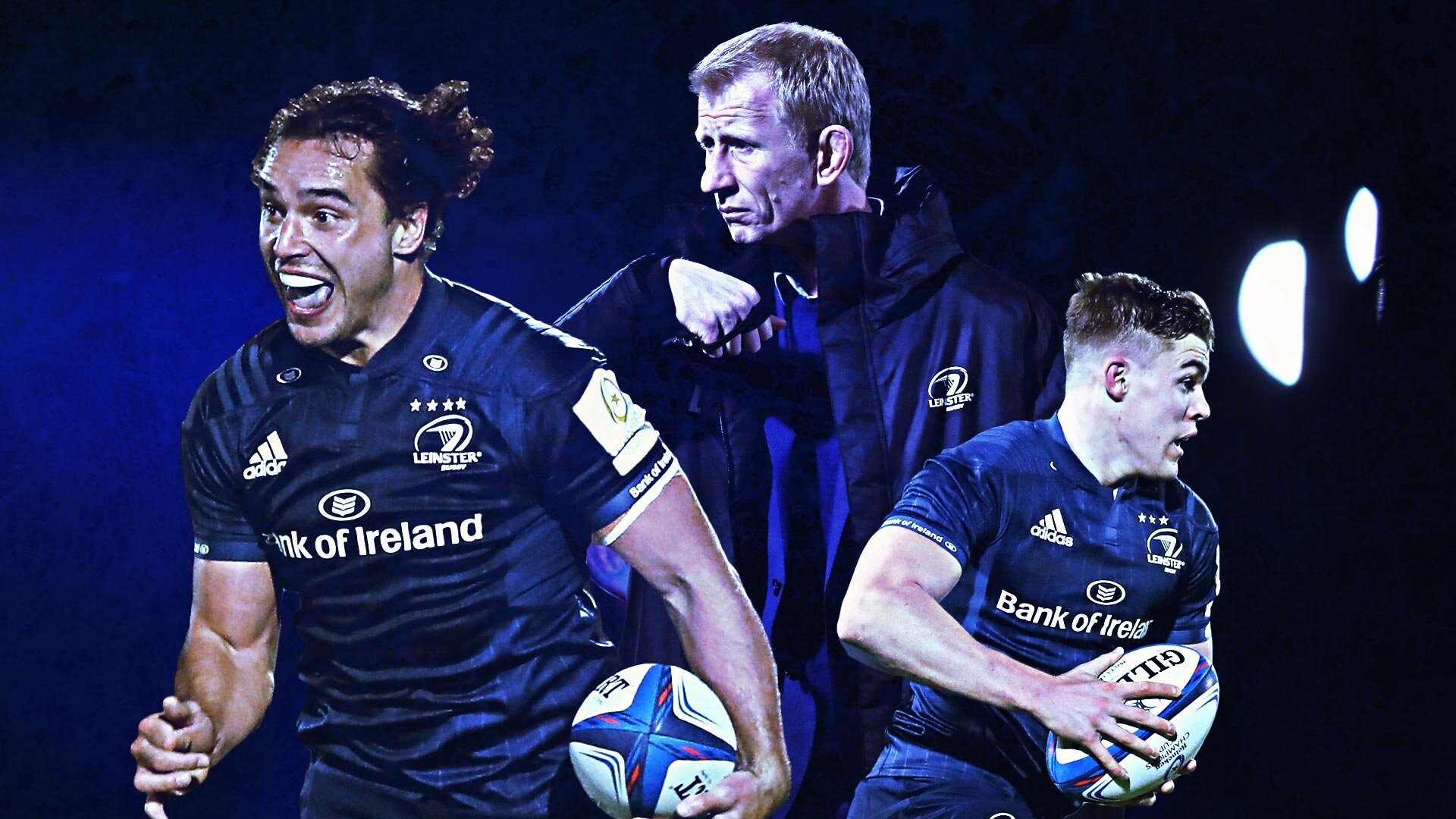Leinster’s emphatic win fires a warning shot to Europe but they left clues on how to beat them

Leinster’s ‘drive for five’ started in emphatic fashion on Friday night, drowning Wasps in a sea of blue tries by 52-3 in the opening defence of their Champions Cup title.
This was as dominant a performance as you can get playing with a ball-control philosophy. Wasps were battered phase after phase in a relentless demonstration at the RDS, failing to ever get a good grip in the one-sided arm wrestle. The dam eventually broke and a flood of points came Leinster’s way.
If there was ever debate about needing a balanced territorial kicking game to win a game of rugby, show them this game tape. This is officially the age of ball-in-hand rugby.
If you have the ball, you have control. If you can keep it, your opponent can’t even get into the game.
This is what separates Leinster from everyone else right now. They have a level of clinical execution to carry out this style of play – without inefficiency, without lapses, without getting ahead of themselves.
The limited kicking that they do deploy is usually contested box kicks, with a chance to regain possession and standard exit kicking inside their own 22. Outside of that, don’t expect Leinster to give you the ball. You will have to take it from them, which most sides can’t do.
All defence systems have a ‘maximum capacity load’ before they break, and Leinster has the ability to find that stress point and then exceed it. Their first possession went 12 phases before an error, which buoyed the confidence of Wasps. They quickly conceded a scrum penalty, handing back possession, which Leinster used for another 10 phases before scoring their first try.
Ten minutes later, Leinster piled on 23 phases, marching down inside the five before turning it over at the final hurdle. Wasps were in the game on the scoreboard down 7-3, but not on the pitch. Every Leinster possession chips away at the defence, wearing it down.
In the final minute of the first half, the yellow card to Sopoaga became the first crack in the dam, and Leinster scored after putting 14 phases together.
A James Lowe strike off a midfield lineout, targeting exactly where the missing Sopoaga wasn’t, extended the lead to 21-3 less than a minute into the second half, triggering a landslide.
Wasps Director of Rugby Dai Young said afterwards he was disappointed about what his side did with ball-in-hand, labelling it the biggest issue for the side rather than defence. He is right. The easiest way to relieve your defence is to do less of it, holding onto the ball stops Leinster doing it.
Wasps are below their best right now after suffering some key personnel losses to injury but have so far this season looked a shell of the side they were with Danny Cipriani at the helm. Letting him walk has disrupted the side more than they have anticipated.
The cohesion is missing and they are unable to play with the control they had last year with the mercurial playmaker. The integration of Lima Sopoaga will take time, whilst Cipriani’s playbook moved with him to Gloucester, taking a lot of what worked so well for Wasps last year.
For any side looking to stop Leinster, it will have to be a case of mirroring what Europe’s champions do to stay in the match. Munster, and to a lesser degree Connacht, have made Leinster fight hard for their Pro14 wins, as all the Irish teams have adopted similar game plans.
This is where having a world-class ‘Jackalers’ can be a trump card. Having a genuine openside flanker has long been the thorn of England’s Premiership teams and by extension, the national side. A total loose forward unit that is immovable over the ball, capable of winning turnovers and disrupting their flow could go a long way to beating them.
David Pocock’s turnovers for the Wallabies over the June series against Ireland were worth anywhere between 20-35 points over the three tests, such was his ability to snuff out attacking raids in good field position. Anyone hoping to beat Leinster needs to have this kind of ability or similar control with ball-in-hand.
Wasps number seven Thomas Young won two turnovers at the ruck on nine contests but Brad Shields had zero on eight attempts, and Nizzam Carr zero from three. Young also gave away one penalty, coming away with a net turnover of just one.
Slowing Leinster’s roll is just one part of the equation however – Leinster’s own defence is just as capable and Wasps gave no clues as to how to unlock it. They were completely flummoxed by a dark blue wall.
Leinster took their first step towards a fifth Champions Cup, showing no signs of slowing down and after Friday night, it’s still not clear who will be able to stop them.

































































